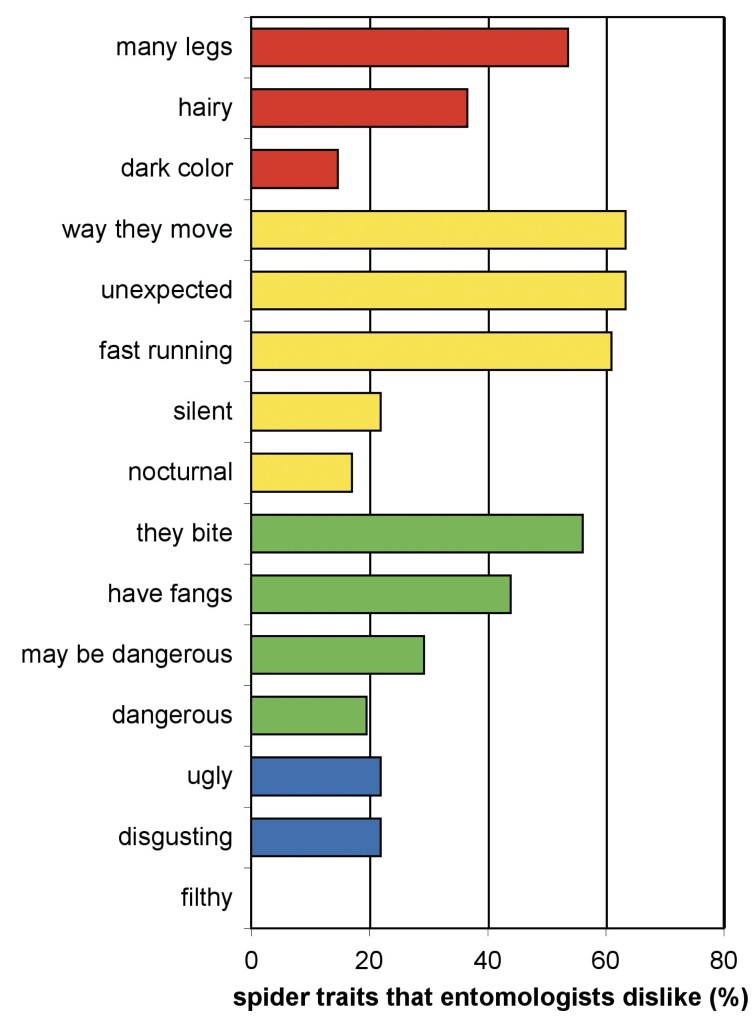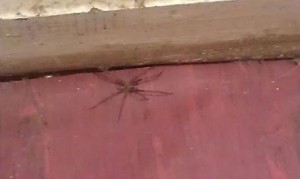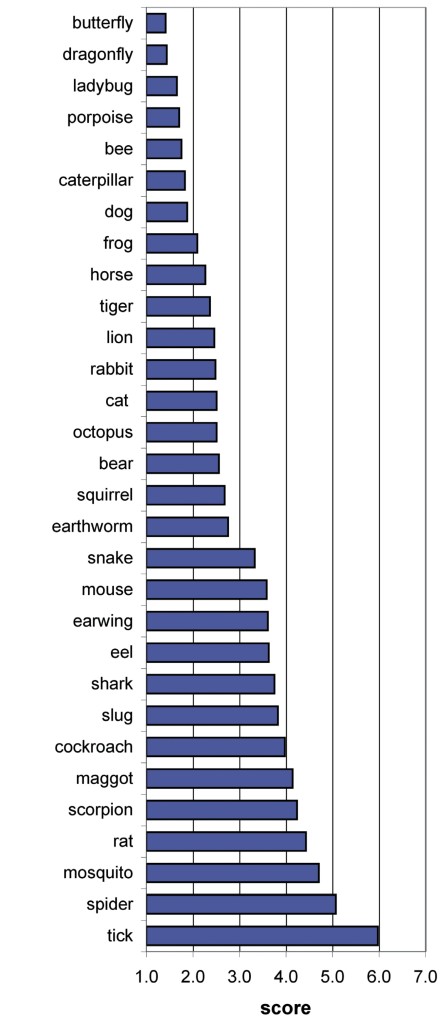Warning: big old spider picture BOO!
Rick Vetter, the quotable spider guy who keeps tabs on the brown widows (spreading) and brown recluses (nonexistent) of Southern California, has a fun article in American Entomologist. The topic sounds as if it was born from a lifetime of forehead-slapping: why are there spider-hating entomologists? An entomologist studies insects, and I know spiders aren’t insects. Still, you’d think professional courtesy at the very least would cause entomologists not to indulge in any of the hyperventilating, car-wrecking, weapons-fetching behavior you see on the Internet when some schmo encounters a spider.
Like the lady in this picture at right. Ooo, sour face.
The British press rose to the occasion in gaudiest fashion by relaying her encounter with the Beast of Orpington (I made that up), “a deadly spider.” You know the drill. Somebody freaks out about Steatoda nobilis, an insignificant spider that’s somehow been dubbed Britain’s Most Venomous. But cor and blimey, just look at this photo and consult with Dr. Internet: if this is a Steatoda nobilis, I’m Tobey Maguire. And I’m not.
This (left) is a picture Ms. Albrow took of the monster, a harmless grass spider most likely, but let’s frighten a few more Brits and call it maybe a wolf spider! (owOOOoooooooo)
Anyway, Vetter found a number of entomologist colleagues who admit to fear and loathing of spiders. One hates spiders but works with maggots for a living and thinks they’re adorable:
This respondent is fully aware of the paradox of this spider-hating, maggot-friendly situation, but concluded an e-mail with “maggots don’t sneak up on you and jump in your hair.”
Often there was a Childhood Incident (tell me about having a family of brothers, I know). Vetter writes, “One entomologist mentioned that while her dislike of spiders is minor, her brother is highly arachnophobic, which ‘comes in handy sometimes.’ “ Several mentioned running into those big orb webs that go up overnight, in which the poor, hardworking arachnid has settled in with a few meager breakfast bugs and somebody face-blunders right into her work. One scientist had a bad dream about being snared by a human-sized spider.
One guy had a Cheiracanthium run all over his face and into his nostrils while he was driving. OK, he gets a pass.
Vetter admits the numbers aren’t representative. Nor is the Fear of Spiders Questionnaire (an actual psychological tool) well-tailored to his research:
When I (or other arachnologists with no spider fear) take the questionnaire, our score is 14 as opposed to the expected score of zero because we give the highest “totally agree” response to two statements (“Currently, I am sometimes on the lookout for spiders,” “I now think a lot about spiders”), but for completely opposite reasons than those of an arachnophobe. Personally, I probably think about spiders every waking hour of the day.
Me, too!
All academic articles should be written this way. First, a pretty chart showing just what the respondents have against spiders. Oingo Boingo (“Insects,” from “Nothing to Fear,” 1982) was right: it’s because they have too many legs! Also they scuttle. And surprise you.

Ugly, but not filthy. Silent, but not deadly. Feared most for “the way they move.” I’m never going to dance again.
Then there’s an amazing chart showing how the respondents rank a whole zoo of animals on a like-dislike scale. Spiders and ticks bring up the rear:
It’s a fun read. Bonus points for finding the words “jeebies” and “willies.”
I want to learn more about arachnophobia. There’s been a lot of research, but it’s still mysterious. Why are lots of people in certain countries afraid of spiders, but not as many in other places? Why would evolution select for arachnophobia, if it did, when spiders barely matter as threats to life and health? Why aren’t people terrified of mosquitoes and flies, which really are little mass-murdering bastids? And again—I think spiders are quite attractive, but even if you didn’t, why would you like maggots better?


